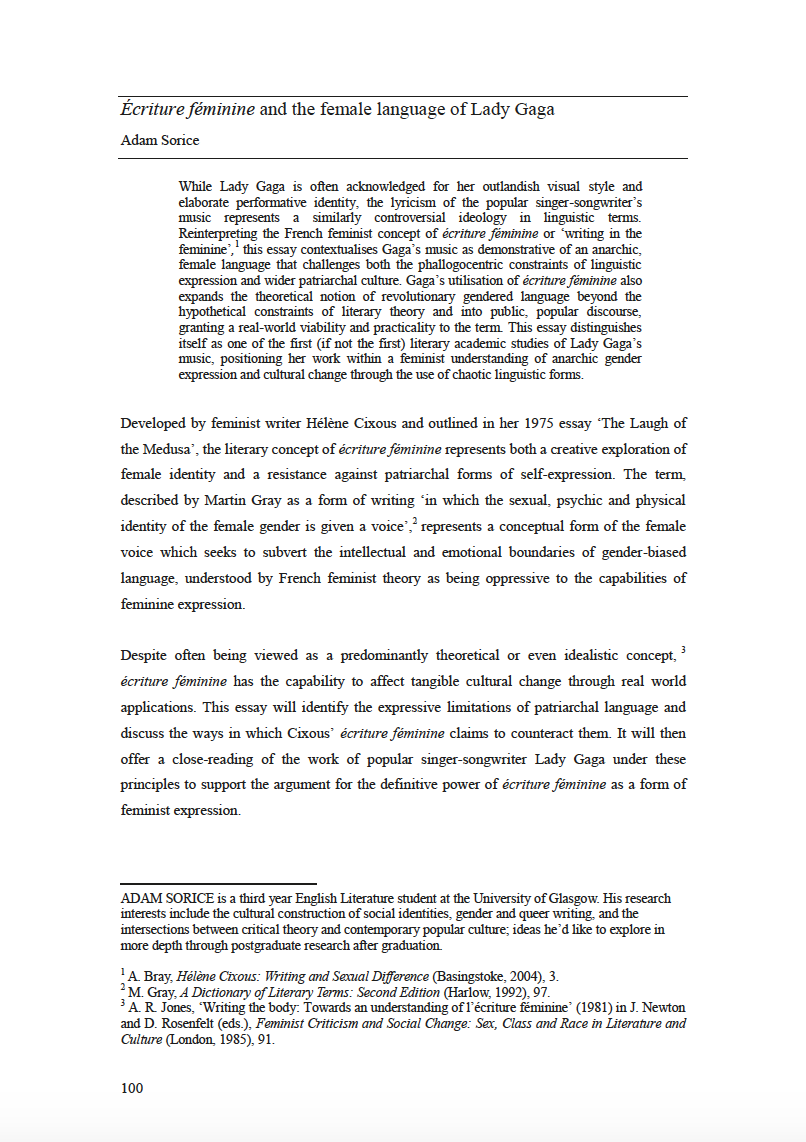Écriture féminine and the female language of Lady Gaga
DOI:
https://doi.org/10.36399/GroundingsUG.6.231Keywords:
Lady Gaga, Écriture féminine, Female Language, Writing in the feminine, Gendered Language, Feminism, Gender ExpressionAbstract
While Lady Gaga is often acknowledged for her outlandish visual style and elaborate performative identity, the lyricism of the popular singer-songwriter’s music represents a similarly controversial ideology in linguistic terms. Reinterpreting the French feminist concept of écriture féminine or ‘writing in the feminine’, this essay contextualises Gaga’s music as demonstrative of an anarchic, female language that challenges both the phallogocentric constraints of linguistic expression and wider patriarchal culture. Gaga’s utilisation of écriture féminine also expands the theoretical notion of revolutionary gendered language beyond the hypothetical constraints of literary theory and into public, popular discourse, granting a real-world viability and practicality to the term. This essay distinguishes itself as one of the first (if not the first) literary academic studies of Lady Gaga’s music, positioning her work within a feminist understanding of anarchic gender expression and cultural change through the use of chaotic linguistic forms.

Published
Issue
Section
License
Copyright (c) 2013 Adam Sorice

This work is licensed under a Creative Commons Attribution 4.0 International License.
The CC BY 4.0 license is a Creative Commons license. This is a non-copyleft free license that is good for art and entertainment works, and educational works. It is compatible with all versions of the GNU GPL; however, like all CC licenses, it should not be used on software. People are free to: Share — copy and redistribute the material in any medium or format; Adapt — remix, transform, and build upon the material for any purpose, even commercially. The licensor cannot revoke these freedoms as long as you follow the license terms. But they must conform to the following terms: Attribution — You must give appropriate credit, provide a link to the license, and indicate if changes were made. You may do so in any reasonable manner, but not in any way that suggests the licensor endorses you or your use. No additional restrictions — You may not apply legal terms or technological measures that legally restrict others from doing anything the license permits.
Please check individual article PDF copies to see if any additional restrictions apply.







